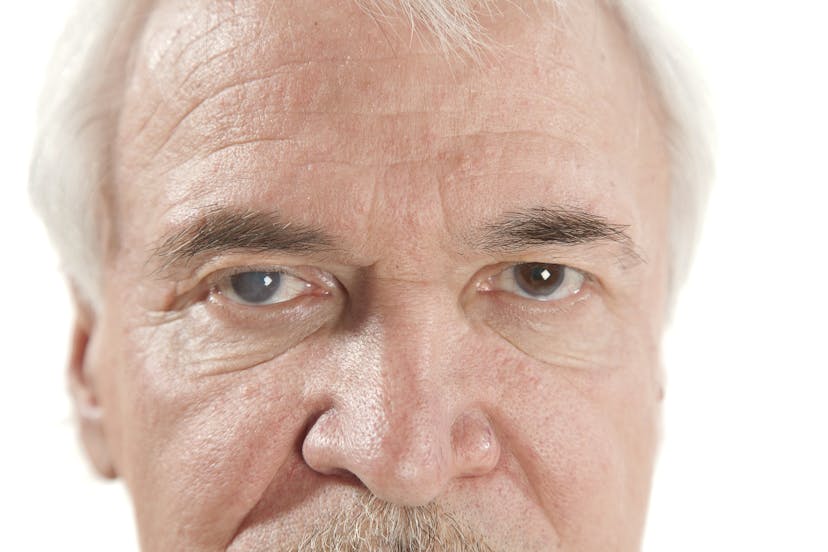
Our eyes play a crucial part in our everyday living, more so that we forget our eyes are enlightening our route and establishing a connection between ourselves and how we experience the outside world.. We are able to recognise, comprehend, and appreciate the wonders around us because of these complex gateways, which are more than just simple sensory organs.
However, some eye conditions, such as glaucoma, might disturb this process. Glaucoma is a collection of eye conditions characterised by optic nerve damage, which frequently results in vision loss. While everyone is affected differently by glaucoma, understanding what glaucoma vision resembles can help shed light on the visual impacts of this medical condition.
Understanding Glaucoma
Let's take an overview of glaucoma before proceeding on to the visual impacts. Elevated intraocular pressure (IOP), brought on by an accumulation of fluid inside the eye, is the primary cause of glaucoma. If ignored, this elevated pressure may increase and harm the nerve that acts as a bridge between the eye and the brain (the optic nerve), which in turn disturbs our visual experience, resulting in vision loss or possibly blindness. A common nickname for glaucoma is the "silent thief of sight" since it usually grows slowly and doesn't create obvious symptoms until serious damage has already been done.
Visual Glaucoma Symptoms:
Loss of Peripheral Vision:
Peripheral vision loss, commonly referred to as tunnel vision, constitutes one of the main visual symptoms of glaucoma. The field of vision increasingly shrinks as glaucoma worsens, making it harder to see objects at the peripheral field of vision. Given that the centre's vision is still largely unaffected, this loss could initially go unrecognised. Some may describe this visual experience as 'looking through a straw' or 'tunnel-like vision'.

Vision Blurring:
Glaucoma can result in vision that is hazy or blurry, making it difficult to focus on both close-up and distant objects. This haziness may be brought on by optic nerve injury, which interferes with the brain's ability to receive visual information.

Halos and Glare:
Glaucoma patients may notice halos or glare near bright lights, rendering it harder to drive at night or see well in conditions with little light. These visual abnormalities develop as a result of in the cornea or lens, which can be a rise in intraocular (eye) pressure.

Poor Contrast Sensitivity:
Glaucoma can impair a person's ability to distinguish between light as well as dark shades. This can make it difficult to differentiate between objects or read text, especially in low-light situations.

Impaired Colour Vision:
At the later stages, Glaucoma can impair colour vision in some situations, causing a decreased capacity for identifying certain hues or a general desaturation of colours. This can make distinguishing between colours and appreciating the richness of the visual world challenging.

Coping with glaucoma:
While glaucoma may impede vision significantly, there are approaches and therapies available to help regulate the condition and enhance one's quality of life. Regular eye exams, early diagnosis, and commitment to treatment plans are critical in successfully managing glaucoma. Depending upon the nature and degree of the glaucoma, treatments might involve ocular drops, oral medications, laser treatments, or surgical procedures. At My I - Clinic we offer all these through and comprehensive treatments tailored to your visual needs.
Individuals with glaucoma are able to enhance their visual function by lifestyle changes in addition to medical treatments. These could include:
Vision Rehabilitation:
Individuals with glaucoma can benefit from vision rehabilitation programmes to acquire adaptive approaches and improve their visual abilities. These programmes may include orientation and mobility training, assistive equipment, and learning methodologies to compensate for visual impairments.
Surgical Treatment:
At My-iClinic we offer a comprehensive range of management options, including surgery to stop the condition from worsening. Our surgery options include Glaucoma Trabeculectomy, HFDS (High-frequency deep sclerotomy), PreserFlo, and Glaucoma Canaloplasty.
Lifestyle changes:
Lifestyle changes can improve visibility for glaucoma patients by ensuring appropriate lighting, minimising glare, and utilising contrasting colours. Daily activities can be considerably improved by making small changes such as using task lighting, building handrails, and organising possessions.
Support on an Emotional Level:
Living with glaucoma can be mentally and physically demanding. Encouragement can be found through asking relatives, close companions, and support groups for support. Given that glaucoma is a chronic condition, spending time talking to your consultant at check-ups could make you feel at ease and supported.
It is incredibly important that we can access and treat your glaucoma in its earlier stages. If your optometrist suspects glaucoma, make sure you book an appointment with us to monitor the glaucoma and advise an appropriate treatment for you.
Although damages done in the past are unrecoverable, our team of experts is renowned for treating patients in North London and the surrounding regions to stop glaucoma within its tracks and protect their sight. Ms Bola Odufuwa-Bolger and Ms. Sancy Lo (Glaucoma specialists) have a variety of treatment choices to discuss with you.
Whichever the most appropriate choice is for your situation, the experts at My-iClinic are here to help you gain insight into your condition, manage it, and stop the development of the condition. To learn more about glaucoma treatment, contact us or send us a message online to schedule a consultation at https://www.my-iclinic.co.uk/glaucoma-treatment.
Find out more by Speaking to our team









